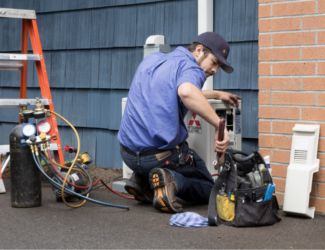
Surge protection for your home
Where do surges come from?
Most power surges originate inside your home or building and result from motorized or “noisy” equipment. Some surges originate outside your home or building and result from weather, animals, neighbors, traffic accidents, utility equipment malfunctions, and so on. Surges can enter your home through power lines, phone lines, or cable TV connections.
The problem:
The microprocessors and other sensitive circuitry in most modern appliances and equipment – like personal computers, microwave ovens, stereos, televisions, VCRs, and fax machines – make them easily damaged by power surges. Equipment can be ruined in one hit, such as during a lightning or wind storm, or it can be damaged little by little over time.
The solution:
Plug your sensitive equipment into a surge suppressor. It’s an inexpensive “insurance policy” for your valuable equipment.
Features to look for in a surge suppressor:
To ensure adequate protection, look for devices with these four specifications, at a minimum:
1. UL 1449 Listed
- Conform to Underwriter Laboratory’s standard UL 1449 for transient voltage surge suppressors (TVSS).
- UL 1449 Listing is required for safety; UL Listing as a “power tap” is not sufficient.
2. Peak surge current
- 39,000 amperes or more.
- Higher is better.
- Sometimes called Maximum Transient Current or Maximum Surge.
3. UL 1449 suppressed voltage rating
- 330 volts gives the best protection.
- Higher voltage ratings give less protection.
- Sometimes called Clamping Voltage.
4. Energy rating (Joules)
- 420 joules or more.
- Higher is better.
- Because testing methods for Energy Rating are not standardized, you shouldn’t base your choice on Energy Rating alone.






